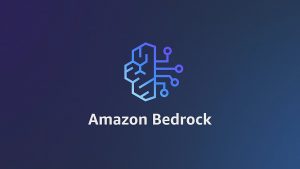What’s a Citizen Analyst and where’s that leave journalists? | #EMCWorld
![]() At EMC World 2014, Stu Miniman hosted an interview with Amy Lewis and John Troyer, two of the three-member team behind the GeekWhisperers podcast, and established community builders within the tech sector. Lewis runs influence marketing at CISCO and Troyer is founder of the website TechReckoning. Miniman’s first question for them was to ask about what’s going on with community influencers in the tech industry.
At EMC World 2014, Stu Miniman hosted an interview with Amy Lewis and John Troyer, two of the three-member team behind the GeekWhisperers podcast, and established community builders within the tech sector. Lewis runs influence marketing at CISCO and Troyer is founder of the website TechReckoning. Miniman’s first question for them was to ask about what’s going on with community influencers in the tech industry.
Community Trends in the Tech Industry
Troyer began his answer by mentioning that for ten years, marketers have known that they “can’t buy more ads. Can’t send out more emails. [They] need to become part of the conversation.”
They may have known the path they needed to take, but Troyer points out that now it’s actually happening: “The buying cycle and process have changed,” he commented. “Customers are looking to their peers” more than ever for advice. Troyer stated that he sees social media no longer “as a trade or a practice, but as a tool set we all use.”
Lewis weighed in, agreeing with Troyer, that social media now functions as a set of tools: “There important platforms. there are important communication channels.” But Lewis also mentioned a marketing tactic that she has implemented, a term she’s coined: “citizen analysts.” These people, as she describes them are unpaid, but “very passionate about technology,” who really want to “write and blog and share, really engage their community.[…] That’s a buying center and we had ego address them.”
- The Role of the Citizen Analyst
Miniman asked Lewis to expand on the citizen analyst, wondering, “where do you see the the role of the press? The analyst? And the influencer?”
Lewis broke down her opinions based on the groups Miniman offered. The press, she explained, is trained to give neutral reporting. The analyst is paid to “have a nice an specialty.” The citizen analysts, though, “roll up their sleeves and really touch the technology.” They are the people who “engage with the technology and let the community know what the new trends are — what their needs are, what the business needs are etc etc.” Troyer added that citizen analysts also have “more skin in the game” because they might lose their jobs if they pick the wrong technology.
- Using Platforms to Build Community Relationships
Miniman pressed, “What about the people inside the corporation that are also using these tools?” Toryer responded that he wis “bullish” about businesses using employees as advocates: “In the enterprise space, we don’t sell solutions with a brochure — we sell it with relationships and with people.” Explaining that businesses need to encourage their employees to actually relate to people in order to represent their company, Troyer compared social media without a personal touch to “handing out brochures.” He stated, “a lot of people are just realizing that now.”![]()
In response, Miniman wondered if Troyer could share the successful ways he sees businesses help with community-building. “I think the best thing we can do is set up a platform for folks to be able to communicate,” Troyer answered, “I think that’s what amy does really well at CISCO.” Lewis picked up this thread, adding “I always talk about influence marketing as being people, platforms and content.” CISCO, she explained, has a pretty good grip on the platform side, but she thinks they are “still working out the people and the content side.” She also wanted to learn “how we can create some new platforms, maybe using the tools of social to drive the conversation forward.”
- Finding a Medium Between Information and Fun
Focusing on Lewis’ marketing tactics, Miniman asked how she balanced creating information and having fun when building a community. Lewis replied that over the last few years, she’s seen how similar her role is to that of sales, and this was the direction in which she’s shifted the language. Her job, she said, “is about building the relationship[…] and it is about balancing fun with your intent. So I do think that if you create a fun environment, an openness and a willingness to listen, then the good things will follow.” By building a relationship, Lewis continued, she makes people feel more confident creating content and sharing”because they don’t feel under attack.” Her “magical formula,” as she puts it is, “be nice and create opportunity.”
For Troyer, Lewis’ approach is much like traditional enterprise sales in which marketers would take people golfing. New marketing tactics, like Lewis’ Vbacon, are differently only slightly, for two reasons: “part of it is a generational shift and part of it is a temperamental shift.” “Our golf,” he elaborated, “Is eating backing and talking about deduplication strategies […] It’s the same sort of thing, just a shift in generation.”
Community and Career Opportunities
Next, Miniman shifted gears to ask about how community can help IT people when it comes to their career paths and education. Lewis replied that Miniman himself is a great example of someone who raised their hand to volunteer, and whose career changed because of his willingness to “make [himself] known to the community, to employers, to the world at large.” This willingness, Lewis went on, “it gives you different opportunities.” Lewis calls people who are eager to step up in this way “unicorns.” She also mentioned that “joining your community is an opportunity to learn from your peers, to give back to your peers, and to raise your profile and open yourself up” to new ideas or new ways to learn. Troyer underscored her point, emphasizing that “being a communicator is absolutely critical in our environment today.”
![]()
- Who Should Companies Invite to Conferences?
Miniman’s next question asked the interviewees who companies should bring to big conferences like the one they were attending — the bloggers or the tech experts? Tryoer responded that different companies have different approaches: “We created a VExpert program in 2008 to kind of formalize what we were already doing […] it’s a little more of a membership thing. But I know both at EMC and at VMware and at CISCO and CISCO champions, they try to embrace the all folks that are out there blogging.”
Lewis agreed with Troyer, saying: “I think that we want to be almost like an airline program that you actually want to participate in.” She continued, “give a program a name and funding can follow.” Lewis also added that when you treat your blogging or expert groups “as a class, it gives you some advantages: scale out a little easier, provide more assets to those individuals, and it frees you up to really engage with those individuals and create content with them.”
Who Is Engaged in IT? How?
The interviewees replies prompted Miniman to ask, “How are we along that journey to get more people involved?”
Lewis replied, “I actually think the opportunity is there more than ever.” And this is due in great part to “the platforms and the scale” which provide “greater opportunity for people.” She cited CISCO Champions, which allows “people to guest blog or […] to come post a podcast.” Some of the most successful groups, according to Lewis are those “that provide apple a little bit, a dose of it” to people who “want to participate.” Troyer followed up her point by emphasizing that he’s seeing the re-emergence of more specialized communities: “people want a deeper conversation, more lasting depth. And now, according to Troyer, “there are more and more platforms that people are making available for this kind of connection.” He finalized his answer by stressing: “What was once niche eventually permeates the whole fabric.”
- Engagement Beyond the Headline
Miniman expressed that he loved the “multi-platform discussion” but wondered, “how do we get that depth? It’s one of the things I worry about — that people will read the headline and react at it — they might even share it but they haven’t read it.” Troyer responded, “I actually think we should do less, not more.” His solution is to create “better, longer pieces that add more value.” Lewis saw the issue as more of a curatorial one, explaining that some people emerge as community leaders because of their ability to “syndicate the content in a way that’s interesting to others.” She sees this ability as a real skill, and one that is widely appreciated because it saves people valuable time.
Upcoming Trends in Community Building
In his next question, Miniman asked his interviewees what’s been catching their eye when it comes to building community. Troyer mentioned his new site, Tech Reckoning, which aims to bring members of the IT and enterprise communities together to talk about where technology is going as a whole. His goal is to bring these people together to “tackle some of these problems and to work together and collaborate.” Troyer also mentioned how excited he is about ” the power of taking the power of people to come together to build cool new stuff.” In her answer, Lewis described what she was most excited about as “seeing social and this concept of community permeate” so that companies really “engage [their] core base […] both in real life and in these community platforms.”
Miniman then turned the interview on its head and asked wether his two interviewees had any questions for him. Lewis referred back to her mention of volunteers as unicorns, asking “Do you think unicorns can be trained? Do you think people are born with a skill set or can you be a unicorn rancher?” Miniman replied that yes, he does believe that unicorns can be trained, but that it requires that they stick with it for a while and learn new skills.
A message from John Furrier, co-founder of SiliconANGLE:
Your vote of support is important to us and it helps us keep the content FREE.
One click below supports our mission to provide free, deep, and relevant content.
Join our community on YouTube
Join the community that includes more than 15,000 #CubeAlumni experts, including Amazon.com CEO Andy Jassy, Dell Technologies founder and CEO Michael Dell, Intel CEO Pat Gelsinger, and many more luminaries and experts.
THANK YOU













